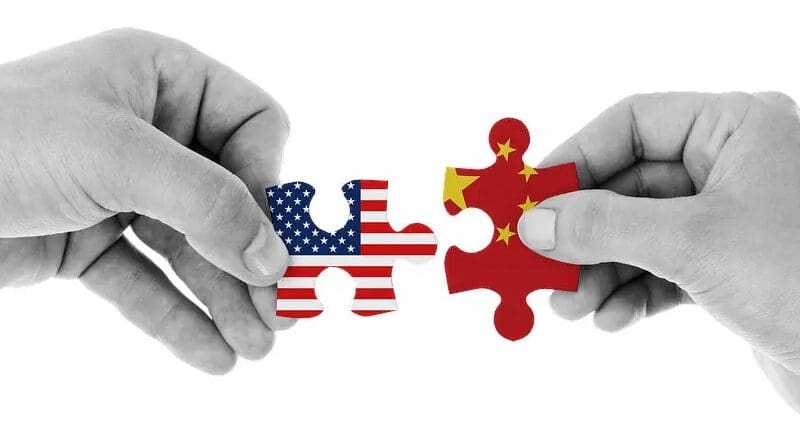The China Challenge After 2020 – Analysis
By Published by the Foreign Policy Research Institute
By Marvin C. Ott*
(FPRI) — The most urgent and immediate issues facing President-elect Joseph Biden will be domestic ones. Still, foreign policy will inevitably and necessarily become a major focus of the new administration.
President-elect Biden prides himself on his international expertise, but he will quickly discover that the world has changed profoundly in the four years since he was vice president. At the core of this transformation lies China—a rising economic and military superpower with huge ambitions and a global presence that is shaping not just Asia, but also Africa, Latin America, and Europe. At the same time, international relations and national power are increasingly defined in terms of science and technology. If you ask the Pentagon what will determine whether U.S. power will remain preeminent, the answer is that it all depends on whether America can retain its technological edge.
In the Obama years, Europe saw China as primarily an Asian concern. But today, China is a major and growing presence in Europe. Chinese officials, with money to spend, are all over Europe looking for large infrastructure investments as part of the Belt and Road Initiative designed to link Europe to China. Already, China has effectively taken ownership of the Greek port of Piraeus with the stated intent of making it Europe’s biggest and most important maritime hub. Much of China’s push has been IT—with a particular focus on tech giant Huawei as a provider of low-cost telecommunications equipment intended to monopolize Europe’s conversion to 5G networks.
The Chinese government had similar ambitions for Huawei in the United States. However, citing Huawei’s close ties to Chinese intelligence agencies, American security experts under both Obama and, particularly Trump, raised the alarm. As a result, Huawei is being forced to leave the U.S. market. American concerns regarding Huawei and other Chinese IT platforms have been urgently communicated to European officials—and, beginning with Britain, European governments have begun to follow the U.S. lead.
Huawei can be seen as a leading indicator in a broader policy shift in Europe that promises to change the global strategic landscape in important ways. European officials are calling for a new partnership with America—and with Asia—designed to counter China. Europeans see a reimagined NATO as the institutional core of what would become an interlocking set of coalitions involving current NATO members, plus Japan, South Korea, Australia, and probably India and several Southeast Asian countries. The common denominator would be twofold: a shared concern regarding China’s hegemonic ambitions and a shared commitment to democracy. The latter has gained urgency with Beijing’s crackdown on Hong Kong’s democratic institutions.
World War II and the Cold War were contests between Western democracy and totalitarianism, so a new coalition of democracies against a totalitarian China and an autocratic Russia (that poses its own threat to the West) seems to fit a familiar pattern. But this time, the democracy coalition is much broader and more diverse—extending from Washington to Paris, from Tokyo to Canberra, and beyond.
This would be a much more complex strategic undertaking than the Cold War. It would involve multiple coalitions comprising different members. For example, an alignment aimed at defending the sea lanes through the South China Sea would include the United States, Australia, Japan, perhaps Singapore, plus Britain, France, and even Germany. A coalition focused on cybersecurity in Europe would have a different composition. In all likelihood, the United States and Japan might be the only countries present in every variant. All this is a bit speculative and visionary, but planning has already begun—much of it centered on NATO. A NATO Reflection Group has produced a conceptual framework, and the process of updating NATO’s Strategic Guidance document is underway. There are proposals on the table to establish one or more NATO liaison offices in Asia while extending NATO’s existing Partnership for Peace outreach beyond Europe to Asia. Concerns regarding IT networks and security have been the subject of a recurring Prague Security Conference.
There is no shortage of test cases calling for a shared U.S.-Europe-Asia approach. Australia is currently under massive Chinese economic pressure/coercion because Canberra has resisted Beijing’s attempts to influence Australia’s domestic politics. Australia needs broad international support. India is considering a ban on Huawei in favor of European-built IT networks. But Huawei’s 5G equipment is much less expensive. New Delhi needs European governments to help European suppliers become cost-competitive.
The global geopolitical landscape is poised on a new configuration. For the Biden administration, it will be a huge challenge—and opportunity.
The views expressed in this article are those of the authors alone and do not necessarily reflect the position of the Foreign Policy Research Institute, a non-partisan organization that seeks to publish well-argued, policy-oriented articles on American foreign policy and national security priorities.
*About the author: Marvin C. Ott is a Senior Fellow at the Foreign Policy Research Institute and a Senior Scholar at the Woodrow Wilson International Center for Scholars.
Source: This article was published by FPRI


Marvin. Read your article and wondered whether any of our NATO allies has joined the US in sending ships through those disputed waters? What are the chances of convincing them to do so?
Cheers (FYI Couildn’t find your Center email address for some reason)